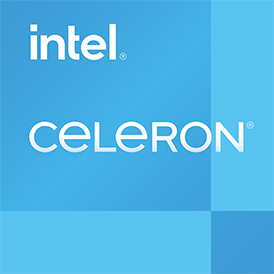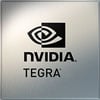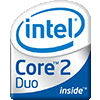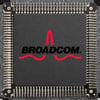
Intel Celeron J4005 Benchmark, Test and specs
Last updated:
The Intel Celeron J4005 has 2 cores with 2 threads and is based on the 9. gen of the Intel Celeron series. The processor uses a mainboard with the BGA 1090 socket and was released in Q4/2017. The Intel Celeron J4005 scores 472 points in the Geekbench 5 single-core benchmark. In the Geekbench 5 multi-core benchmark, the result is 892 points.

| Name: | Intel Celeron J4005 |
|---|---|
| Family: | Intel Celeron (165) |
| CPU group: | Intel Celeron J4000/N4000/N5000 (11) |
| Architecture: | Gemini Lake |
| Segment: | Mobile |
| Generation: | 9 |
| Predecessor: | -- |
| Successor: | -- |
CPU Cores and Base Frequency
The Intel Celeron J4005 has 2 CPU cores and can calculate 2 threads in parallel. The clock frequency of the Intel Celeron J4005 is 2.00 GHz (2.70 GHz). The number of CPU cores greatly affects the speed of the processor and is an important performance indicator.
| CPU Cores / Threads: | 2 / 2 |
|---|---|
| Core architecture: | normal |
| Cores: | 2x |
| Hyperthreading / SMT: | No |
|---|---|
| Overclocking: | No |
| Frequency: | 2.00 GHz |
| Turbo Frequency (1 Core): | 2.70 GHz |
| Turbo Frequency (2 Cores): | 2.70 GHz |
Internal Graphics
The Intel Celeron J4005 has integrated graphics, called iGPU for short. Specifically, the Intel Celeron J4005 uses the Intel UHD Graphics 600, which has 96 texture shaders and 12 execution units. The iGPU uses the system's main memory as graphics memory and sits on the processor's die.
| GPU name: | Intel UHD Graphics 600 |
|---|---|
| GPU frequency: | 0.25 GHz |
| GPU (Turbo): | 0.70 GHz |
| Compute units: | 12 |
| Shader: | 96 |
| Hardware Raytracing: | No |
| Release date: | Q4/2017 |
| Max. displays: | 3 |
|---|---|
| Generation: | 9.5 |
| Direct X: | 12 |
| Technology: | 14 nm |
| Max. GPU Memory: | 8 GB |
| Frame Generation: | No |
Hardware codec support
A photo or video codec that is accelerated in hardware can greatly accelerate the working speed of a processor and extend the battery life of notebooks or smartphones when playing videos.
| h265 / HEVC (8 bit): | Decode / Encode |
|---|---|
| h265 / HEVC (10 bit): | Decode / Encode |
| h264: | Decode / Encode |
| VP8: | Decode / Encode |
| VP9: | Decode / Encode |
| AV1: | No |
|---|---|
| AVC: | Decode / Encode |
| VC-1: | Decode |
| JPEG: | Decode / Encode |
Memory & PCIeThe processor can use up to 8 GB memory in 2 (Dual Channel) memory channels. The maximum memory bandwidth is 38.4 GB/s. The memory type as well as the amount of memory can greatly affect the speed of the system. |
|
| Memory type: | Memory bandwidth: |
|---|---|
| LPDDR4-2400 DDR4-2400 | 38.4 GB/s 38.4 GB/s |
| Max. Memory: | 8 GB |
| Memory channels: | 2 (Dual Channel) |
| ECC: | No |
| PCIe: | 2.0 x 6 |
| PCIe Bandwidth: | 3.0 GB/s |
Thermal ManagementThe thermal design power (TDP for short) of the processor is 10 W. The TDP specifies the necessary cooling solution that is required to cool the processor sufficiently. The TDP usually gives a rough idea of the actual power consumption of the CPU. |
|
|---|---|
| TDP (PL1 / PBP): | 10 W |
| TDP (PL2): | -- |
| TDP up: | -- |
| TDP down: | -- |
| Tjunction max.: | 105 °C |
Technical details
The Intel Celeron J4005 is made in 14 nm. The smaller the manufacturing process of a CPU, the more modern and energy-efficient it is. Overall, the processor has 4.00 MB cache. A large cache can greatly speed up the processor's speed in some cases such as games.
| Technology: | 14 nm |
|---|---|
| Chip design: | Monolithic |
| Socket: | BGA 1090 |
| L2-Cache: | -- |
| L3-Cache: | 4.00 MB |
| AES-NI: | Yes |
| Operating systems: | Windows 10, Windows 11, Linux |
| Virtualization: | VT-x, VT-x EPT, VT-d |
|---|---|
| Instruction set (ISA): | x86-64 (64 bit) |
| ISA extensions: | SSE4.1, SSE4.2 |
| Release date: | Q4/2017 |
| Release price: | -- |
| Part Number: | -- |
| Documents: | Technical data sheet |
Rate this processor
Benchmark results

The benchmark results for the Intel Celeron J4005 have been carefully checked by us. We only publish benchmark results that have been created by us or that have been submitted by a visitor and then checked by a team member. All results are based on and fullfill our benchmark guidelines.
Geekbench 5, 64bit (Single-Core)
Geekbench 5 is a cross plattform benchmark that heavily uses the systems memory. A fast memory will push the result a lot. The single-core test only uses one CPU core, the amount of cores or hyperthreading ability doesn't count.

|
AMD A10-5700
4C 4T @ 4.00 GHz |
||

|
Intel Core i3-2370M
2C 4T @ 2.40 GHz |
||

|
Intel Pentium 2020M
2C 2T @ 2.40 GHz |
||
|
|
Intel Celeron J4005
2C 2T @ 2.70 GHz |
||

|
Intel Core i5-3439Y
2C 4T @ 2.30 GHz |
||

|
Intel Celeron G1820T
2C 2T @ 2.40 GHz |
||

|
AMD FX-6100
6C 6T @ 3.90 GHz |
||
Geekbench 5, 64bit (Multi-Core)
Geekbench 5 is a cross plattform benchmark that heavily uses the systems memory. A fast memory will push the result a lot. The multi-core test involves all CPU cores and taks a big advantage of hyperthreading.

|
Intel Celeron N4020
2C 2T @ 2.70 GHz |
||
|
|
HiSilicon Kirin 659
8C 8T @ 2.36 GHz |
||

|
Intel Pentium Gold 4415Y
2C 4T @ 1.70 GHz |
||
|
|
Intel Celeron J4005
2C 2T @ 2.70 GHz |
||

|
MediaTek Helio G35
8C 8T @ 2.30 GHz |
||

|
Intel Pentium B980
2C 2T @ 2.40 GHz |
||

|
Intel Core i5-4300Y
2C 4T @ 1.60 GHz |
||
Geekbench 6 (Single-Core)
Geekbench 6 is a benchmark for modern computers, notebooks and smartphones. What is new is an optimized utilization of newer CPU architectures, e.g. based on the big.LITTLE concept and combining CPU cores of different sizes. The single-core benchmark only evaluates the performance of the fastest CPU core, the number of CPU cores in a processor is irrelevant here.

|
Intel Celeron N4020
2C 2T @ 2.80 GHz |
||

|
Intel Celeron N4020C
2C 2T @ 2.80 GHz |
||

|
Intel Pentium B970
2C 2T @ 2.30 GHz |
||
|
|
Intel Celeron J4005
2C 2T @ 2.70 GHz |
||

|
Intel Pentium Silver J5005
4C 4T @ 2.80 GHz |
||

|
Intel Core i3-2100T
2C 4T @ 2.50 GHz |
||

|
Intel Core i3-2348M
2C 4T @ 2.30 GHz |
||
Geekbench 6 (Multi-Core)
Geekbench 6 is a benchmark for modern computers, notebooks and smartphones. What is new is an optimized utilization of newer CPU architectures, e.g. based on the big.LITTLE concept and combining CPU cores of different sizes. The multi-core benchmark evaluates the performance of all of the processor's CPU cores. Virtual thread improvements such as AMD SMT or Intel's Hyper-Threading have a positive impact on the benchmark result.

|
Intel Celeron N4020C
2C 2T @ 2.80 GHz |
||

|
Nintendo Switch
8C 8T @ 1.00 GHz |
||

|
Intel Core i3-3227U
2C 4T @ 1.90 GHz |
||
|
|
Intel Celeron J4005
2C 2T @ 2.70 GHz |
||

|
AMD GX-424CC
4C 4T @ 2.40 GHz |
||

|
AMD GX-420CA
4C 4T @ 2.00 GHz |
||

|
Intel Pentium N4200
4C 4T @ 2.50 GHz |
||
iGPU - FP32 Performance (Single-precision GFLOPS)
The theoretical computing performance of the internal graphics unit of the processor with simple accuracy (32 bit) in GFLOPS. GFLOPS indicates how many billion floating point operations the iGPU can perform per second.

|
Intel Celeron 2961Y
Intel HD Graphics (Haswell GT1) @ 0.85 GHz |
||

|
Intel Pentium 3560Y
Intel HD Graphics (Haswell GT1) @ 0.85 GHz |
||

|
Intel Pentium 3561Y
Intel HD Graphics (Haswell GT1) @ 0.85 GHz |
||
|
|
Intel Celeron J4005
Intel UHD Graphics 600 @ 0.70 GHz |
||

|
Intel Celeron J3355E
Intel HD Graphics 500 @ 0.70 GHz |
||

|
Intel Celeron J3455E
Intel HD Graphics 500 @ 0.70 GHz |
||

|
Intel Celeron J4115
Intel UHD Graphics 600 @ 0.70 GHz |
||
Estimated results for PassMark CPU Mark
Some of the CPUs listed below have been benchmarked by CPU-monkey. However the majority of CPUs have not been tested and the results have been estimated by a CPU-monkey’s secret proprietary formula. As such they do not accurately reflect the actual Passmark CPU mark values and are not endorsed by PassMark Software Pty Ltd.

|
Intel Celeron G1820T
2C 2T @ 2.40 GHz |
||

|
Intel Pentium G3220T
2C 2T @ 2.60 GHz |
||

|
Intel Core i3-550
2C 4T @ 3.20 GHz |
||
|
|
Intel Celeron J4005
2C 2T @ 2.70 GHz |
||

|
Qualcomm Snapdragon 821
4C 4T @ 2.40 GHz |
||

|
Intel Core i5-4202Y
2C 4T @ 1.60 GHz |
||

|
Intel Core i5-4220Y
2C 4T @ 1.60 GHz |
||
CPU-Z Benchmark 17 (Multi-Core)
The CPU-Z benchmark measures a processor's performance by measuring the time it takes the system to complete all benchmark calculations. The faster the benchmark is completed, the higher the score.

|
Intel Pentium E5300
2C 2T @ 2.60 GHz |
||

|
Intel Celeron E3400
2C 2T @ 2.60 GHz |
||

|
Intel Celeron N4020
2C 2T @ 1.10 GHz |
||
|
|
Intel Celeron J4005
2C 2T @ 2.00 GHz |
||

|
Intel Celeron E3300
2C 2T @ 2.50 GHz |
||

|
Intel Pentium E5200
2C 2T @ 2.50 GHz |
||

|
Intel Core2 Duo E6600
2C 2T @ 2.40 GHz |
||
Cinebench R15 (Single-Core)
Cinebench R15 is the successor of Cinebench 11.5 and is also based on the Cinema 4 Suite. Cinema 4 is a worldwide used software to create 3D forms. The single-core test only uses one CPU core, the amount of cores or hyperthreading ability doesn't count.

|
AMD Athlon II X4 740
4C 4T @ 3.70 GHz |
||

|
AMD Phenom II X6 1045T
6C 6T @ 3.20 GHz |
||

|
Intel Core i3-2350M
2C 4T @ 2.30 GHz |
||
|
|
Intel Celeron J4005
2C 2T @ 2.70 GHz |
||

|
Intel Celeron J4125
4C 4T @ 2.70 GHz |
||

|
Intel Celeron 2950M
2C 2T @ 2.00 GHz |
||

|
AMD Phenom II X4 B95
4C 4T @ 3.00 GHz |
||
Cinebench R15 (Multi-Core)
Cinebench R15 is the successor of Cinebench 11.5 and is also based on the Cinema 4 Suite. Cinema 4 is a worldwide used software to create 3D forms. The multi-core test involves all CPU cores and taks a big advantage of hyperthreading.

|
AMD Phenom II X2 545
2C 2T @ 3.00 GHz |
||

|
AMD Phenom II X2 B55
2C 2T @ 3.00 GHz |
||

|
Intel Core i3-4012Y
2C 4T @ 1.50 GHz |
||
|
|
Intel Celeron J4005
2C 2T @ 2.70 GHz |
||

|
Intel Pentium J3710
4C 4T @ 2.64 GHz |
||

|
Intel Pentium 3825U
2C 4T @ 1.90 GHz |
||

|
Intel Celeron 3765U
2C 2T @ 1.90 GHz |
||
Benchmarks

Geekbench 5 (SC)
2,488 entries
2,488 entries

Geekbench 5 (MC)
2,461 entries
2,461 entries

Geekbench 6 (SC)
1,755 entries
1,755 entries

Geekbench 6 (MC)
1,703 entries
1,703 entries

FP32 SP (iGPU)
2,042 entries
2,042 entries

PassMark CPU-Mark
2,392 entries
2,392 entries

CPU-Z Benchmark 17 (MC)
733 entries
733 entries

Cinebench R15 (SC)
1,106 entries
1,106 entries

Cinebench R15 (MC)
1,101 entries
1,101 entries

Geekbench 3 (SC)
942 entries
942 entries

Geekbench 3 (MC)
938 entries
938 entries

Cinebench R11.5 (SC)
825 entries
825 entries

Cinebench R11.5 (MC)
836 entries
836 entries
Popular comparisons
back to index






